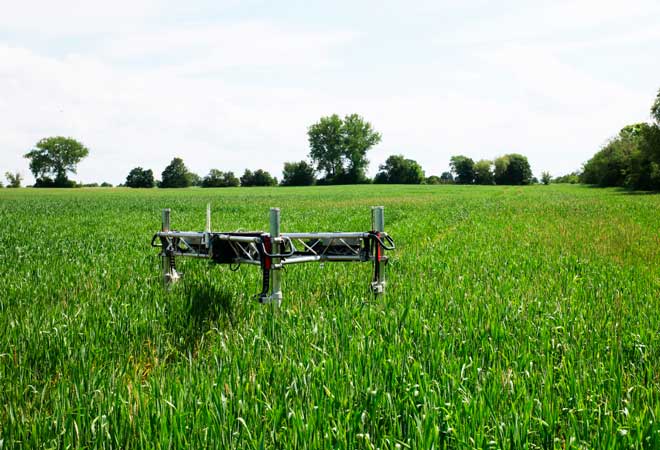Organic agriculture faces serious challenges. The demand for organically produced food has grown enormously in recent years. However, agriculture is increasingly facing the growing effects of climate change, such as extreme weather conditions that result in crop failures that threaten growth. At the same time, cost pressures on farmers are increasing due to competition and environmental demands.
Digital agriculture - but how?
Digitalization encompasses agriculture as well. Agricultural robotics and intelligent farming are critical words for development. Thanks to new technologies, agriculture must become more resilient to climate change and scarce land more sustainable, environmentally friendly, and cost-effective. Technological advances also increase production and productivity. On the other hand, it increases cost pressures, especially for farmers on small farms. They lack the financial resources to farm within environmentally compatible material cycles successfully and within their workload.
Therefore, solutions are needed to significantly reduce agricultural producers' burden and associated costs without sacrificing productivity while providing adequate crop protection and reducing environmental impacts without lowering yields. Not an easy task.
Comprehensive agricultural development
With E-TERRY, a group of European developers is expanding agricultural technology by creating the first fully automated carrier platform for the field. It allows farmers to manage their domains economically and environmentally optimally through automation. E-TERRY automates processes that are still done manually in organic farming. These include weed removal, fertilizing, and harvesting. As an open equipment carrier, E-TERRY makes it easy to integrate individual actuators, sensors, and technologies from different manufacturers and thus solve various tasks in agriculture, industry, and research.
Through the RootCamp Innovation Hub program, E-TERRY has access to a well-equipped ecosystem with solid corporate and networking partners, sufficient training resources, and funding to build an investment-ready business model.
Developers are currently preparing to establish a company in Erfurt to build the fourth generation of E-TERRY. In the course of this, it is planned to attract new technology partners, with whom it will be possible to expand the scope of their operator platform. In addition, they plan to launch a pilot project in plant monitoring with a research institute by the end of this year. With so many projects, the team will not be able to avoid the first round of seed funding.




